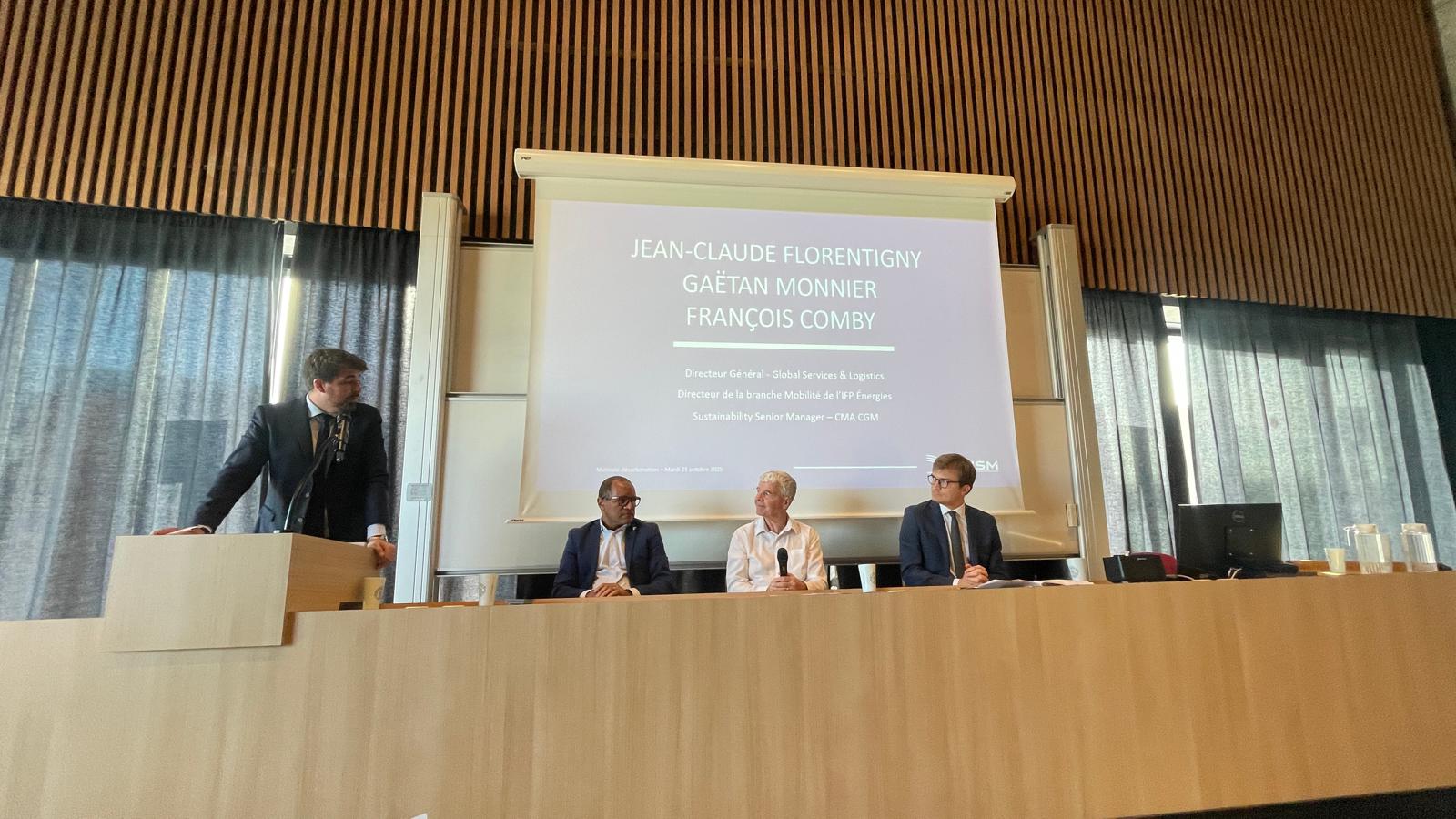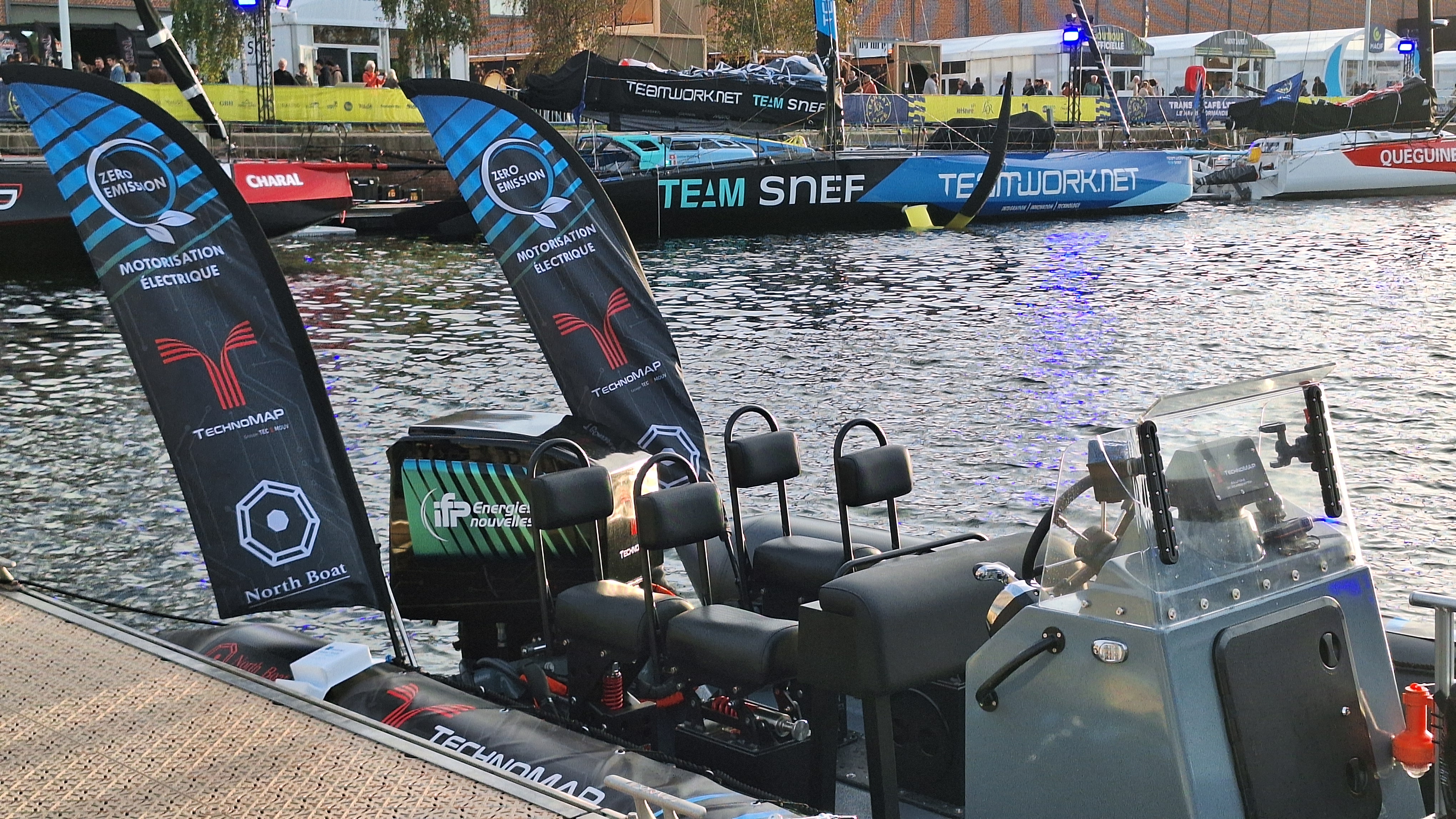23.10.2025
3 minutes of reading
On October 21, just a few days before the start of the Transat Café de L’Or, the French Maritime Academy (ENSM) in Le Havre hosted two round tables dedicated to the decarbonization of maritime transport, moderated by its Director General. Organized as part of the events leading up to the race, these discussions brought together key industry stakeholders around a shared goal: rethinking maritime transport in the context of the energy transition.
Among the speakers was Gaëtan Monnier, Director of IFPEN’s Mobility business unit, who took part alongside TOWT, a French sail-powered shipping company, and CMA CGM, France’s leading shipping group.This event followed on from earlier collaborations between IFPEN and maritime industry players, notably a study conducted for CMA CGM in March 2025 that assessed the greenhouse gas emissions of alternative marine fuels.
A Systemic Challenge: urgency, complexity and transition
At the beginning of his talk, Gaëtan Monnier recalled that between 2000 and 2019, IFPEN was the world’s leading public research and higher education institution for patents in CCUS and alternative fuels. He then emphasized that decarbonizing maritime transport is no longer an option but a necessity, given the climate emergency and the ongoing growth in global shipping traffic.
“This large-scale transformation,” he explained, “represents a multifaceted challenge—technological, economic, regulatory, and geopolitical—that requires systemic solutions and a gradual transition toward new energy and industrial models.”

Three levers for a low-carbon maritime future
Looking ahead, Gaëtan Monnier identified three key pillars to achieve this transformation:
- Hybridization of solutions : “Decarbonization will rely on a combination of levers: alternative fuels (hydrogen, ammonia, green methanol, etc.), operational optimization, and innovative propulsion,” he noted.
- Maritime circular economy : Developing local production and consumption loops for energy, turning ports into true energy hubs.
- A stronger global framework : Establishing coherent international regulation (such as a maritime carbon tax) and fostering public–private partnerships to support R&I and infrastructure development.
Launch of the e-Ocean semi-rigid pPrototype
To close the day, the evening session highlighted electrification solutions for maritime mobility. Attendees were invited to discover the 730 e-Ocean semi-rigid prototype—an electric retrofit solution for rigid inflatable boats developed by Technomap.
The prototype’s motor and power electronics were developed as part of IFPEN’s R&I activities, providing a tangible example of the organization’s contribution to the energy transition in maritime transport.






